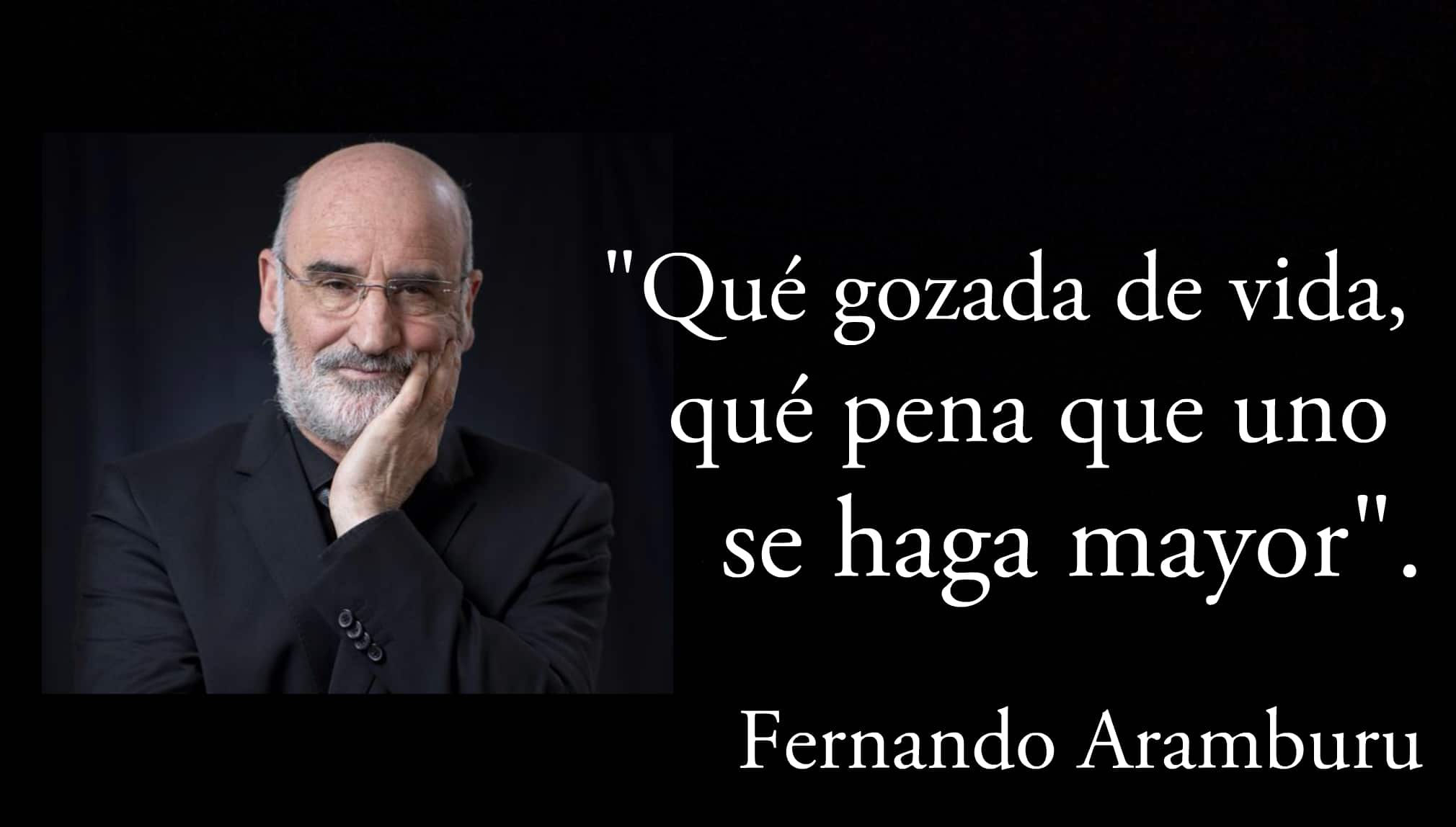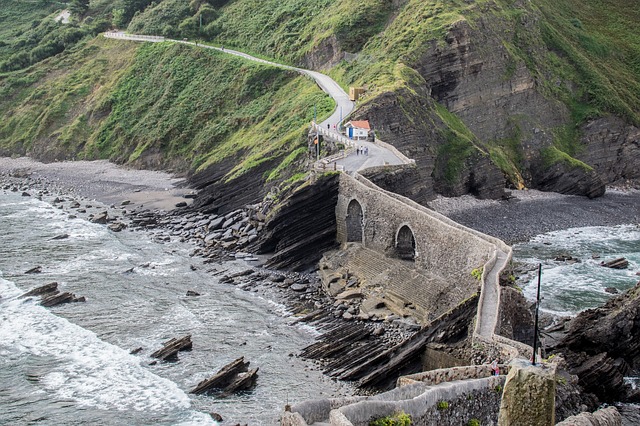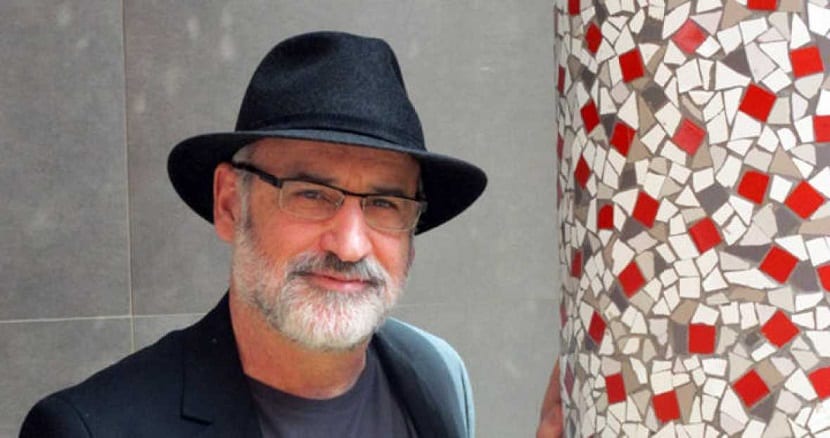
Homeland phrase by Fernando Aramburu.
Fernando Aramburu is one of the most outstanding novelists in the Spanish contemporary literary scene. Although he has been writing since the 90s, it was in 2016 that he achieved great notoriety thanks to his work Homeland (2016). It is a story that shows the more than 40 years of terror that ETA instilled in the territory.
Homeland marked a before and after in his career as a writer. With this book he got excellent comments from literary critics, who consider it a memorable novel. Since the publication of this work, Aramburu has won outstanding awards, among them: Francisco Umbral to the Book of the Year (2016), De la Critica (2017), Basque Literature in Spanish (2017), National Narrative (2017) and the International COVITE (2019).
Books by Fernando Aramburu
Empty Eyes: Antibula Trilogy 1 (2000)
It is the author's second book, and with it he began the Antibula Trilogy. The novel is set in the fictional country with the homonymous name of the saga (Antíbula) and takes place at the beginning of the XNUMXth century.. The story is bloody and sad, but with glimpses of hope at the right moments; the details of the plot are narrated by a child —the fruit of a clandestine love between a city girl and a foreigner—.
Synopsis
August 1916, Antibula, everything is uphill: the king has been assassinated and his queen tries to defect. The country is heading to face a dictatorial regime, nothing will be like before.
As this turbulence whips through the region, a strange stranger above and stays in a residence. It is about an enigmatic man who arrives in the country attracted by the daughter of old Cuiña —owner of the hostel where he has arranged to stay—.
Against the wishes of the old man, the young people start a relationship, and fruit of this union was born a creature. As time goes by, the little boy must deal with his grandfather's rejection and cruelty, with the result of his parents' bad decisions and the adverse circumstances that consume the country.
However, thanks to the love of his mother the calm that manages to find in his favorite literary texts, the child gets the impetus to get afloat and not give up, an attitude that is decisive in history.
The trumpeter of Utopia (2003)
It is the third novel of the writer. It was published in Barcelona in February 2003. The book takes place between Madrid and Estella, has 32 chapters that are distinguished by a rich use of language. The story has precise touches of black humor —typical of the author— and presents sordid, close, human characters, very well done.
Synopsis
Benito is a thirtysomething who dropped out of university and works in a Madrid bar called Utopía.. In addition to his work at the bar, he sometimes plays the trumpet in the hope that someone will appreciate his talent. has a libertine life and his body screams the evidence of it: he is thin, pale and haggard.
Due to a family misfortune, the young man must move to his hometown, Estella —north of Spain—: his father is dying. Despite not having had the best relationship with him, she decides to go at the insistence of her partner, Pauli, and because of the possible inheritance. Although Benito thought that his trip would be a simple "come and go", several incidents changed all his plans, and even his life.
Life of a louse named Matías (2004)
It is a children's and youth novel that the writer cataloged as: "A story for young people from eight to eighty-eight years old". The book is a metaphor whose protagonist is a louse named Matías, who narrates in the first person his adventures within his small and dangerous world.
Synopsis
Matías is a louse who already in his old age decides to tell his life and how he managed to survive in his tiny universe. He was born in the neck of a train conductor, a huge space with lush hair and a typical corduroy cap. In its existence it had to resist: foamy storms, hot air from the dryer and the dreaded scratching fingers.
One day decides to take a risk and together with his sister begins to travel new paths in search of a spring near the ear. But the innocent lice fall into the hands of King Caspa, who forces them to work on the construction of his palace. This misadventure becomes a very hard part of his life: He went hungry and thirsty, fell in love, had children and received advice from other old lice.
Homeland (2016)
It is listed by literary critics as one of Aramburu's most important novels. The plot takes place in a fictional town in Guipúzcoa, in which the terrorist group ETA applied political repression. The story describes the long period of the Basque conflict, from the first attack in 1968 —years after Francoism— until 2011when the ceasefire is announced.

Basque Country Landscape
Synopsis
In 2011, time after the ETA assassinated Txato Lertxundi, the insurgent group decided to give end to the armed conflict. After this news, the businessman's widow decided to return to the village from which he once had to flee with his family as a result of the abertzale repression.
Despite the ceasefire, Bittori had to return very cautiously, and that is why he secretly arrived at the place. However, her presence was noted: the tension grew and a hunt was unleashed against her and her people.
About the Author
Fernando Aramburu Irigoyen was born on January 4, 1959 in San Sebastian, Basque Country (Spain). He grew up in a humble and hard-working family. His father was a worker and his mother a housewife. He studied at the Augustinian school and from a young age was an avid reader, a fan of poetry and theater..

He entered the University of Zaragoza and studied Hispanic Philology, and got his degree in 1983. At the same time, he belonged to the Grupo CLOC de Arte y Desarte, in which he carried out various activities that mixed poetry and humor. In 1985 he moved to Germany —after falling in love with a German student—, where he became a Spanish teacher.
In 1996 he published his first novel: Fires with lemon, whose argument was based on his experiences in the CLOC Group. Later he published other narratives, among which the following stand out: Empty eyes (2000) Bami no shadow (2005) and Slow years (2012). Nevertheless, the work that catapulted his career was Homeland (2016), with which he managed to sell more than 1 million copies and was translated into dozens of languages.
In addition to his novels, Spanish has published poetry, short stories, aphorisms, essays and translations. Also, some of his works have been adapted to film, theater and television, such is the case of:
- Under the stars (2007, film), adaptation of The trumpeter of Utopia, winner of two Goya awards.
- life of a louse called Matias (2009). It was adapted to puppet theater by the company El Espejo Negro. It won the Max award for Best Children's Show.
- Television series Homeland, produced by HBO and released in 2020.
Books by Fernando Aramburu
- Fires with lemon (1996)
- Antibula Trilogy:
- Empty eyes (2000)
- Bami no shadow (2005)
- The great Marivian (2013)
- The trumpeter of Utopia (2003)
- Life of a louse named Matías (2004)
- Clara trip by Germany (2010)
- Slow years (2012)
- greedy pretenses (2014)
- Homeland (2016)
- Swifts (2021)



